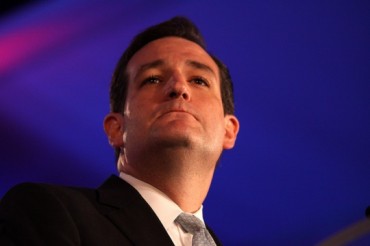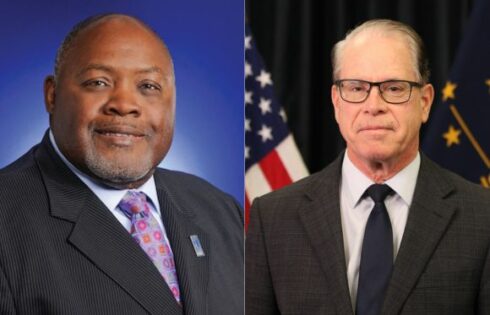
Adam O’Neal is a 2013 College Fix fall fellow, working as a Washington D.C. beat reporter for Real Clear Politics. He’s doing great work, and today he has a very interesting story out about the GOP’s efforts to woo young voters. The age gap at the voting booth has been growing in the Obama era, with Democrats beating Republicans by wide margins among voters under thirty. In his story, O’Neal looks at what Republicans are trying to do to reverse that trend.
Some 50 million voting-age millennials live in the United States, and a Colorado state legislator named Owen Hill wants to be the first one elected to the U.S. Senate.
That would be a personal milestone for the 31-year-old Air Force Academy grad, who will have to win a crowded primary first, but it would also be a significant and symbolic step for his political party: Owen Hill (pictured) is a Republican, and the GOP has been hemorrhaging young voters for the past decade.
For even longer than that, Democrats have expected young Americans to break for them in large numbers. It started with Bill Clinton in 1992, slipped back in 2000, and began anew in 2004. That’s when John Kerry beat George W. Bush among under-30 voters by nine points. The gap widened in 2008, when Barack Obama received a record 66 percent of the youth vote to John McCain’s 32 percent. In 2012, Obama held a 28-point advantage over Mitt Romney…
Alex Smith, chairman of the CRNC, asserted that her organization is making inroads with groups it hadn’t previously reached. She pointed to a recent CRNC ad comparing Virginia Democratic gubernatorial candidate Terry McAuliffe to a “catfish,” a term popularized by an MTV show about people who assume a false identities online, usually to pursue an Internet romance.
“We didn’t go to broadcast television or traditional radio,” Smith said. Instead, the CRNC purchased over 1.5 million ad impressions on Hulu, Pandora, Spotify and YouTube.
John Della Volpe, director of polling at the Harvard Institute of Politics, said the GOP didn’t seriously compete for youth votes in last two election cycles, adding that the party hadn’t thought about “campaigning in a way which connects the candidates to young people.”
O’Neal provides a fascinating glimpse inside the workings of the Republican machine. And it remains to be seen how successful the GOP will be in adapting its campaign strategies. Read his full story here.
The necessary strategy for young voters has two main aspects: 1) better messaging, 2) better candidates. The Democrats, especially those working on Obama’s campaigns, were better at marketing themselves. Think of the famous Obama “Hope” poster, and the cheesy “Yes we can” slogan. Republicans may have understandably looked down on those efforts as shallow and juvenile. But Democrats understood that young voters tend to look for something more than sensible government, they tend to look for a cause to believe in.
Whether, in fact, the average Obama supporter under thirty understood much about his policy positions is beside the point. The democrats amassed a body of effective media and messaging, to channel the aspirations of youth into political loyalty. From the outside looking in, it had the unmistakable appearance of a personality cult. I don’t suggest that the GOP should mimic the opposition in this regard. But learning to communicate conservative principles in a way that gives young people a cause to believe in would be a good place to start. Be bold. Be idealistic. The GOP could learn a lot from the campaign of Ron Paul.
This leads me to the other critical point: candidates. The GOP needs new faces. Stiff white guys in suits are a liability for any party who wishes to woo millennial voters. With so many fresh faces on the GOP scene, from Paul Ryan to Rand Paul to Ted Cruz, one would hope that the GOP’s streak of nominating cardboard candidates for the presidency is coming to an end. Fair or not, we live in an era in which personality is more important to politics than ever.
The era of the CNN or Fox News sound bite belonged to Bill Clinton and George W. Bush. The era of the internet meme and the viral YouTube video belonged to Barack Obama. Republicans need to adapt themselves to the realities of modern media. That means bringing younger tech savvy personnel in to lead campaigns. It also means bringing in younger candidates with a fresh image, who can offer young voters a cause to believe in, not merely a political platform to contemplate.
Nathan Harden is editor of The College Fix and author of the book SEX & GOD AT YALE: Porn, Political Correctness, and a Good Education Gone Bad.
Like The College Fix on Facebook. / Follow Nathan on Twitter @NathanHarden
(Image source: GageSkidmore/Flickr)






Please join the conversation about our stories on Facebook, Twitter, Instagram, Reddit, MeWe, Rumble, Gab, Minds and Gettr.